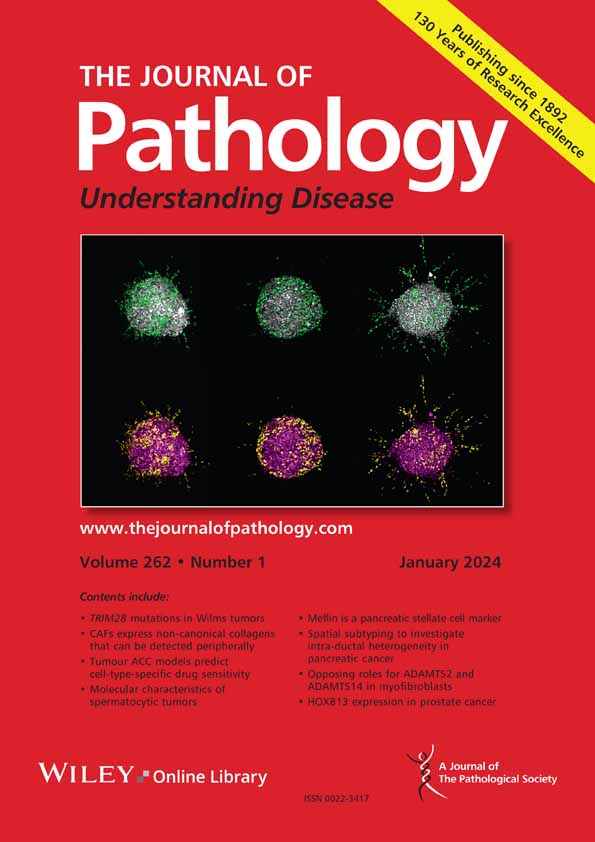Julien Calderaro, Helen Morement, Frédérique Penault-Llorca, Stephen Gilbert, Jakob Nikolas Kather
下载PDF
{"title":"The case for homebrew AI in diagnostic pathology","authors":"Julien Calderaro, Helen Morement, Frédérique Penault-Llorca, Stephen Gilbert, Jakob Nikolas Kather","doi":"10.1002/path.6438","DOIUrl":null,"url":null,"abstract":"<p>Artificial intelligence (AI) methods for digital pathology have tremendous potential to improve cancer diagnostics, biomarkers, and ultimately patient care. These AI methods, if marketed and sold, require authorisation or clearance as <i>in vitro</i> diagnostic (IVD) devices by regulatory bodies like the Food and Drug Administration (FDA) in the USA or Notified Bodies in the European Union (EU). Many AI tools for digital pathology are unlikely to be commercially viable and taken up by commercial entities ready to navigate these complex and costly processes. However, a longstanding quality framework already exists that allows for lab-developed tests, colloquially known as ‘homebrew’ tests, that are locally validated and performed under the responsibility and oversight of the pathologist. Here we argue for advancing homebrew AI systems within this existing framework to enhance patients' access to supportive digital diagnostic tools. We outline how homebrew AI models are currently permitted under regulatory provisions in the USA and the European Union, how a new US FDA rule may effectively regulate them out of existence, and propose steps to facilitate the safe and effective integration of homebrew AI models in pathology practice. © 2025 The Author(s). <i>The Journal of Pathology</i> published by John Wiley & Sons Ltd on behalf of The Pathological Society of Great Britain and Ireland.</p>","PeriodicalId":232,"journal":{"name":"The Journal of Pathology","volume":"266 4-5","pages":"390-394"},"PeriodicalIF":5.2000,"publicationDate":"2025-07-04","publicationTypes":"Journal Article","fieldsOfStudy":null,"isOpenAccess":false,"openAccessPdf":"https://onlinelibrary.wiley.com/doi/epdf/10.1002/path.6438","citationCount":"0","resultStr":null,"platform":"Semanticscholar","paperid":null,"PeriodicalName":"The Journal of Pathology","FirstCategoryId":"3","ListUrlMain":"https://pathsocjournals.onlinelibrary.wiley.com/doi/10.1002/path.6438","RegionNum":2,"RegionCategory":"医学","ArticlePicture":[],"TitleCN":null,"AbstractTextCN":null,"PMCID":null,"EPubDate":"","PubModel":"","JCR":"Q1","JCRName":"ONCOLOGY","Score":null,"Total":0}
引用次数: 0
引用
批量引用
Abstract
Artificial intelligence (AI) methods for digital pathology have tremendous potential to improve cancer diagnostics, biomarkers, and ultimately patient care. These AI methods, if marketed and sold, require authorisation or clearance as in vitro diagnostic (IVD) devices by regulatory bodies like the Food and Drug Administration (FDA) in the USA or Notified Bodies in the European Union (EU). Many AI tools for digital pathology are unlikely to be commercially viable and taken up by commercial entities ready to navigate these complex and costly processes. However, a longstanding quality framework already exists that allows for lab-developed tests, colloquially known as ‘homebrew’ tests, that are locally validated and performed under the responsibility and oversight of the pathologist. Here we argue for advancing homebrew AI systems within this existing framework to enhance patients' access to supportive digital diagnostic tools. We outline how homebrew AI models are currently permitted under regulatory provisions in the USA and the European Union, how a new US FDA rule may effectively regulate them out of existence, and propose steps to facilitate the safe and effective integration of homebrew AI models in pathology practice. © 2025 The Author(s). The Journal of Pathology published by John Wiley & Sons Ltd on behalf of The Pathological Society of Great Britain and Ireland.
自制人工智能在诊断病理学中的应用。
用于数字病理学的人工智能(AI)方法在改善癌症诊断、生物标志物以及最终的患者护理方面具有巨大的潜力。这些人工智能方法如果上市和销售,需要获得美国食品和药物管理局(FDA)或欧盟(EU)公告机构等监管机构的体外诊断(IVD)设备授权或许可。许多用于数字病理学的人工智能工具不太可能具有商业可行性,也不太可能被准备好应对这些复杂且成本高昂的流程的商业实体所采用。然而,一个长期存在的质量框架已经存在,允许实验室开发的测试,俗称“自制”测试,在病理学家的责任和监督下进行本地验证和执行。在这里,我们主张在现有框架内推进自制人工智能系统,以增强患者获得支持性数字诊断工具的机会。我们概述了目前在美国和欧盟的监管规定下,自制人工智能模型是如何被允许的,美国FDA的新规定如何有效地监管它们的存在,并提出了促进自制人工智能模型在病理实践中安全有效整合的步骤。©2025作者。《病理学杂志》由John Wiley & Sons Ltd代表大不列颠和爱尔兰病理学会出版。
本文章由计算机程序翻译,如有差异,请以英文原文为准。



 求助内容:
求助内容: 应助结果提醒方式:
应助结果提醒方式:


